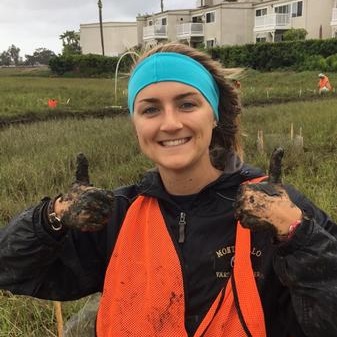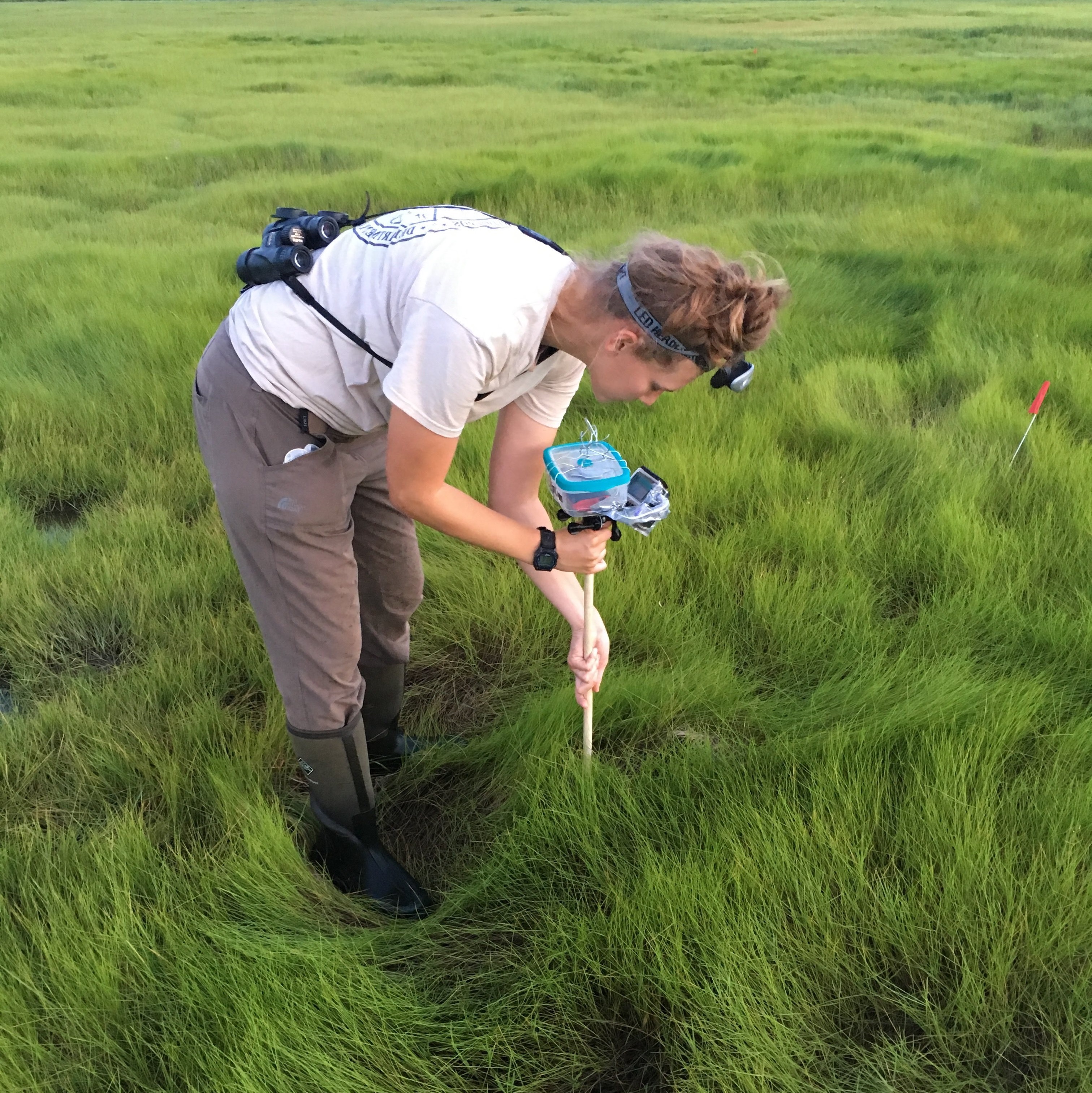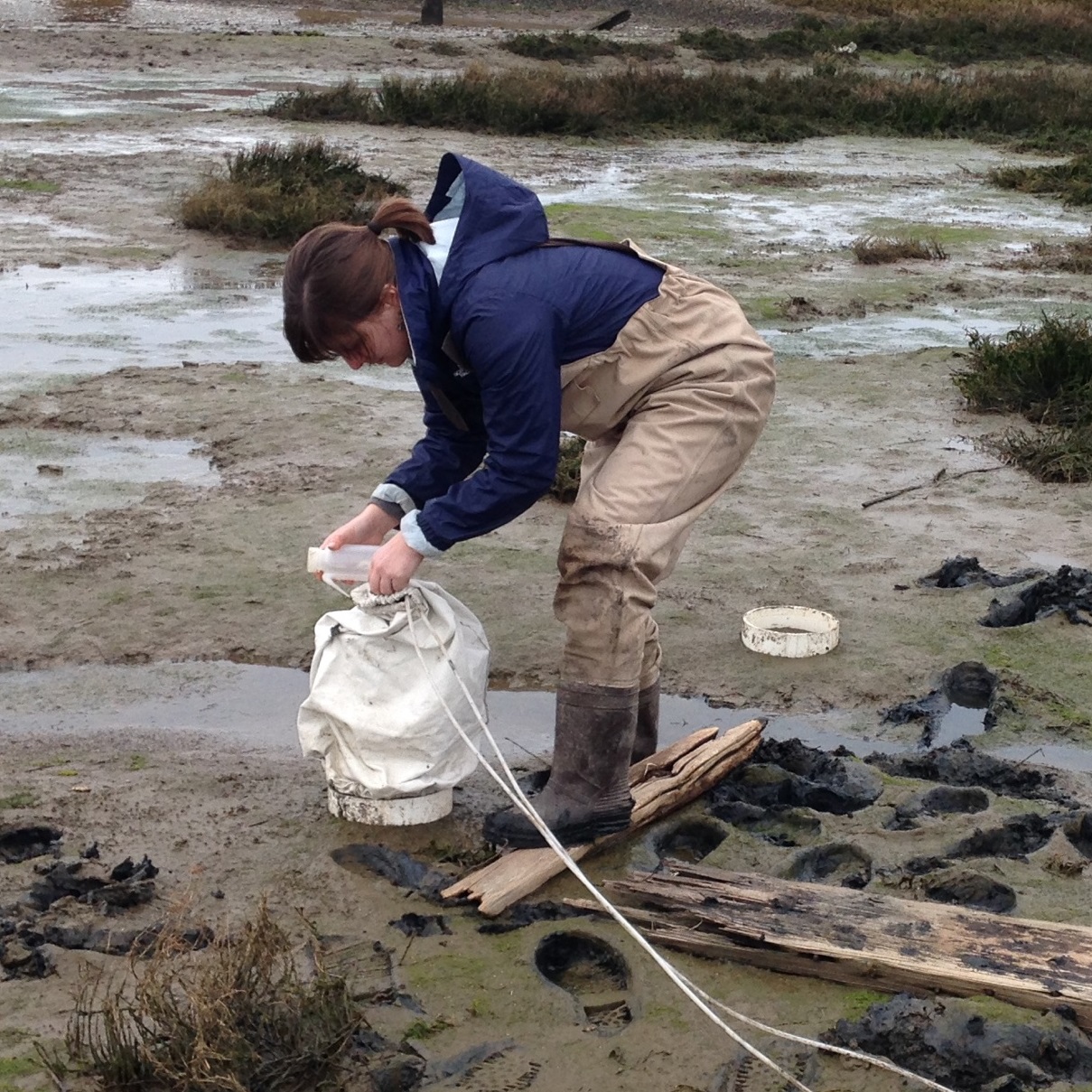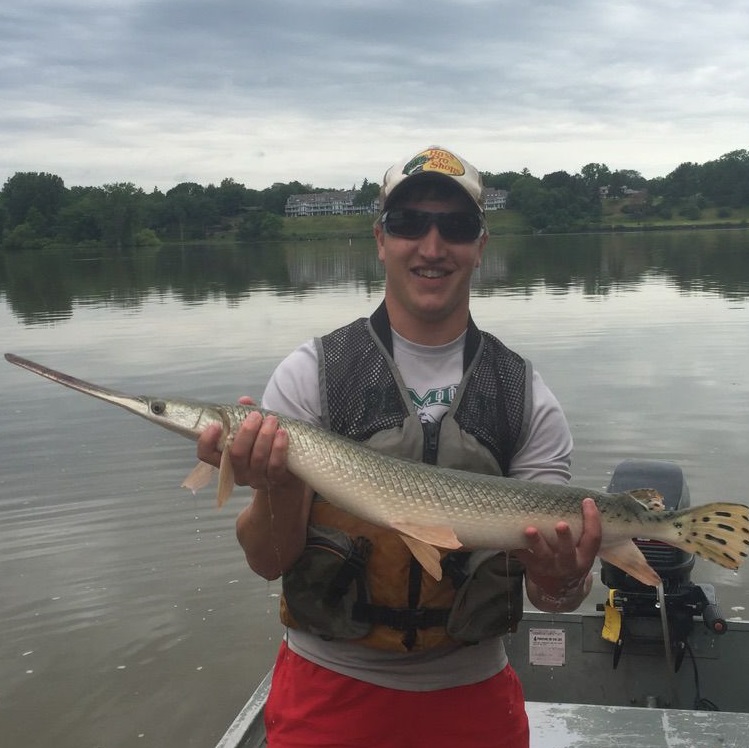GCA Coastal Wetlands Scholarship Award Recipients
Award Recipients in 2017
Janet Walker, a Ph.D. student at San Diego State University, will study the non-trophic effects of animals on community dynamics in California salt marshes. The central goal of this research is to address how crabs can influence community dynamics by modifying plant interactions via burrowing in coastal salt marshes. These impacts of crabs may shape the distribution and abundance of plant species and may be especially pronounced at lower latitudes where temperature-related stress is already high. The activities of such organisms may mitigate the impacts of climate change by reducing environmental stress that would otherwise change plant communities.
a Ph.D. student at San Diego State University, will study the non-trophic effects of animals on community dynamics in California salt marshes. The central goal of this research is to address how crabs can influence community dynamics by modifying plant interactions via burrowing in coastal salt marshes. These impacts of crabs may shape the distribution and abundance of plant species and may be especially pronounced at lower latitudes where temperature-related stress is already high. The activities of such organisms may mitigate the impacts of climate change by reducing environmental stress that would otherwise change plant communities.
Samantha Apgar,  a Ph.D. student at the University of Connecticut, will study extinction risk of specialist marsh birds as sea levels rise. Sea level rise is a persistent and global threat to tidal marshes. Apgar proposes a study of extinction risk due to sea level rise in three tidal marsh bird specialist species. Examining the reproductive risk of an array of different avian specialists with different anti flooding adaptations may provide a deeper understanding of the risk sea level rise poses to tidal marsh ecosystems as a whole.
a Ph.D. student at the University of Connecticut, will study extinction risk of specialist marsh birds as sea levels rise. Sea level rise is a persistent and global threat to tidal marshes. Apgar proposes a study of extinction risk due to sea level rise in three tidal marsh bird specialist species. Examining the reproductive risk of an array of different avian specialists with different anti flooding adaptations may provide a deeper understanding of the risk sea level rise poses to tidal marsh ecosystems as a whole.
Elisabeth Powell,  a Master's student at Drexel University, will study the the effect of Open Marsh Water Management (OMWM) practices on the carbon balance of tidal marshes in Barnegat Bay, New Jersey. This proposed research will address an unstudied impact of OMWM ponds on carbon sequestration, a valued ecosystem function of coastal marshes. OMWM is a common mosquito control practice. Powell will measure emissions of carbon dioxide and methane from ponded areas, intact marsh, and in areas where plants have died due to disturbance to identify changes in the carbon sequestration associated with OMWM practices and then scale up these measurements with spatial analysis.
a Master's student at Drexel University, will study the the effect of Open Marsh Water Management (OMWM) practices on the carbon balance of tidal marshes in Barnegat Bay, New Jersey. This proposed research will address an unstudied impact of OMWM ponds on carbon sequestration, a valued ecosystem function of coastal marshes. OMWM is a common mosquito control practice. Powell will measure emissions of carbon dioxide and methane from ponded areas, intact marsh, and in areas where plants have died due to disturbance to identify changes in the carbon sequestration associated with OMWM practices and then scale up these measurements with spatial analysis.
Nathan Stott,  a Master's student at Bowling Green State University, will study the use of reconnected Lake Erie coastal wetlands by fishes. Stott will observe the use of reconnected coastal wetlands by native northern pike and compare spawning migration patterns with common carp to improve management of Great lakes coastal wetland. This is beneficial because many coastal wetlands are currently unavailable for use by fishes because common carp can have drastic negative effects on these systems. Allowing native fishes to utilize these habitats could be beneficial if common carp exclusion was possible.
a Master's student at Bowling Green State University, will study the use of reconnected Lake Erie coastal wetlands by fishes. Stott will observe the use of reconnected coastal wetlands by native northern pike and compare spawning migration patterns with common carp to improve management of Great lakes coastal wetland. This is beneficial because many coastal wetlands are currently unavailable for use by fishes because common carp can have drastic negative effects on these systems. Allowing native fishes to utilize these habitats could be beneficial if common carp exclusion was possible.

